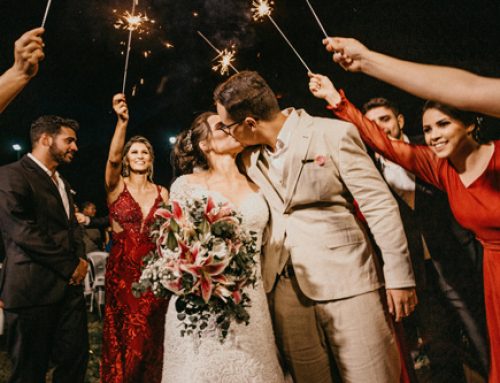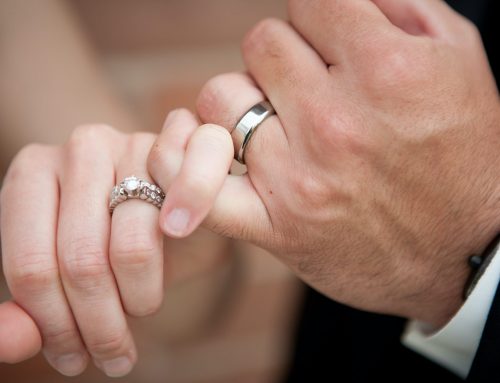You’ve likely heard of eloping, but what does it mean, and how is it different from a traditional wedding?
Eloping, in its modern context, means forgoing a formal wedding and choosing a more casual, intimate ceremony instead. It’s not necessarily about running away in secret anymore, although that was the term’s original meaning. Nowadays, an elopement can be a small, meaningful celebration. A traditional wedding typically involves a larger gathering and a more structured ceremony.
A 2022 national survey of couples found that 62% of engaged U.S.-based couples are open to considering a scaled-back elopement-style wedding. Eloping is becoming increasingly popular among couples. They’re seeking more personal, intimate, and stress-free alternatives to traditional weddings.
What Is Eloping?
Initially, eloping referred to couples running away secretly to get married, often without the consent or knowledge of their families. Nowadays, it’s a rising trend for weddings to be non-traditional, reflecting a shift towards more personal, intimate celebrations.
It’s all about letting go of the expectations and pressures that come with traditional weddings and just focusing on the couple and their love. Elopement can take many forms, from a private ceremony in a beautiful outdoor location to a city hall marriage with a celebratory dinner afterward. Some couples choose to elope alone, while others invite a handful of close friends or family members.
Modern ideas for an alternative wedding include destination elopements, adventure elopements, and micro-weddings. These types of weddings often have fewer than 10 guests and are typically shorter in duration.

Pros and Cons of Eloping
Eloping can seem like a dream come true for many couples. The freedom to create a wedding day that reflects their relationship, the ability to avoid the stress and expense of a traditional wedding, and the intimate, personal nature of an elopement are all compelling reasons to consider this alternative. However, like any major decision, eloping has pros and cons.
Advantages
Eloping offers several benefits:
- By choosing to elope, you eliminate many of the typical wedding planning stressors, enabling you to focus on each other and your commitment.
- Eloping can be significantly more cost-effective. The average cost of a wedding in the U.S. in 2022 was around $30,000, while elopements are often a fraction of that cost.
- You can make the day about your love for each other without distractions.
- Eloping provides flexibility in location and timing, allowing you to tie the knot in a place that is meaningful to you.
- With fewer guests and less formal expectations, you can personalize your ceremony and celebration.
One of the best tips to help make wedding planning less stressful — even an elopement — is to hire a wedding planner or similar to help you smooth out all the details. While not all elopements may require this, destination elopements or more complex ones may benefit!
However, as with all events, there are some disadvantages to address before taking the plunge.
Disadvantages
It’s crucial for couples to weigh these considerations carefully before deciding to elope:
- One of the most common challenges associated with eloping is managing the reactions of family and friends. Some may feel hurt, left out, or upset if they aren’t included in the celebration.
- Eloping often means foregoing many traditional wedding elements, such as a first dance, bouquet toss, or cake cutting. If these traditions are important to you, this could be a disadvantage.
- Eloping reduces wedding stress by simplifying the process, but can also mean less help with planning.
- Don’t rush into eloping without considering a traditional wedding. Take time to think about what you want from your special day to avoid future regrets.
Eloping as an alternative to dealing with wedding guest etiquette can be a great option for couples. Understanding the potential disadvantages will help you make the right choice.
Planning an Elopement vs. a Traditional Wedding
When it comes to planning an elopement versus a traditional wedding, it’s important to know that both options are legitimate and recognized forms of marriage as long as they meet certain requirements.
The main requirement to make a marriage official in most states is the presence of a licensed officiant who can legally witness and validate the marriage. Some states also require one or two witnesses. After the ceremony, the officiant signs the marriage license, which then goes to the county clerk’s office for recording.
That said, there are several differences in planning an elopement versus a traditional wedding:
- Scale: Traditional weddings often involve an extensive guest list, an elaborate ceremony, and a reception, whereas elopements typically involve just the couple and possibly a few close friends or family members.
- Location: Traditional weddings require a location that can accommodate many guests. With elopements, you have more flexibility since you only need to find a location suitable for a small group.
- Budget: Traditional weddings can be expensive due to costs associated with the venue, catering, decor, and more. Eloping significantly cuts these costs.
- Planning time: Traditional weddings often require extensive planning, sometimes over a year or more. Eloping can be organized in a much shorter timeframe.
Both options are valid and can provide a meaningful start to your married life.
Choosing a Venue
Choosing a venue for your elopement can be quite different from selecting a location for a traditional wedding. For an elopement, the venue can be anywhere that’s significant to you. In contrast, conventional wedding venues often need to provide facilities like restrooms, parking, and catering services.
When choosing your venue, whether for an elopement or a traditional wedding, it’s essential to consider the following factors:
- Availability on your preferred date
- Capacity for your guest list (if any)
- Accessibility for your guests
- Any restrictions or rules
- Cost and what’s included in the price
If you’re seeking adventure and aiming for a distinctive elopement experience, consider any additional factors that may require consideration.
Inviting Guests
The guest list for a traditional wedding can vary significantly in size, but it often includes family members, friends, and sometimes colleagues or acquaintances. Traditional weddings can have anywhere from a few dozen to several hundred attendees.
Elopements typically involve just the couple, an officiant, and maybe one or two witnesses. Some couples invite a handful of close family members or friends, but it’s not uncommon for an elopement to be a private event with no additional guests.
Setting a Budget
Even a simple elopement involves some expenses, so setting a budget is important. Here are some things you might need to budget for:
- Even if you’re eloping, you might need to pay a permit or access fee for your chosen location.
- Attire — this includes the wedding dress, groom’s tuxedo, and any makeup or hair styling services.
- Whether you hire a professional or use a streaming service, don’t forget to budget for music.
- Wedding rings symbolize your commitment and should be factored into your budget.
- Even if you’re keeping things simple, you might want a bouquet or boutonniere.
- Consider how you’ll get to and from your elopement location.
- you plan to have a post-elopement celebration with family and friends, this must also be budgeted for.
- Don’t forget the cost of obtaining a marriage license.
You may need to factor in other costs depending on your elopement plans.
Exchanging Vows and Rings
Exchanging vows and rings is integral to traditional wedding ceremonies and elopements. In a formal ceremony, the exchange of vows and rings usually happens in front of all the guests. The officiant guides the couple through their vows, after which they place the rings on each other’s fingers.
During an elopement, the exchange of vows and rings can be more intimate and personal. Without a large audience, couples might feel freer to express their feelings. Some choose to write their own vows, while others prefer the simplicity of traditional vows.
When choosing wedding bands for an elopement, consider rings that reflect your style and lifestyle. Tungsten carbide rings are popular due to their durability and various designs.
Additional Considerations
Apart from the ceremony, there are other factors to consider when planning an elopement.
- Ensure you understand the legal requirements for getting married in your chosen location, including obtaining a marriage license.
- Choose clothing that fits the vibe of your location and makes you feel amazing.
- Consider hiring a professional to capture your day, or arrange for a friend or family member to take photos or video.
- If cultural or family traditions matter to you, consider incorporating them into your elopement.
Again, this comes down to your and your partner’s preferences and how you’d like to celebrate your special day.
Is Eloping Right for You?
Deciding whether to elope or have a traditional wedding is such a personal decision. It’s all about reflecting your values and desires as a couple. Make sure you have a deep conversation with your partner and really think about what will make your wedding day super meaningful to both of you.





Leave A Comment